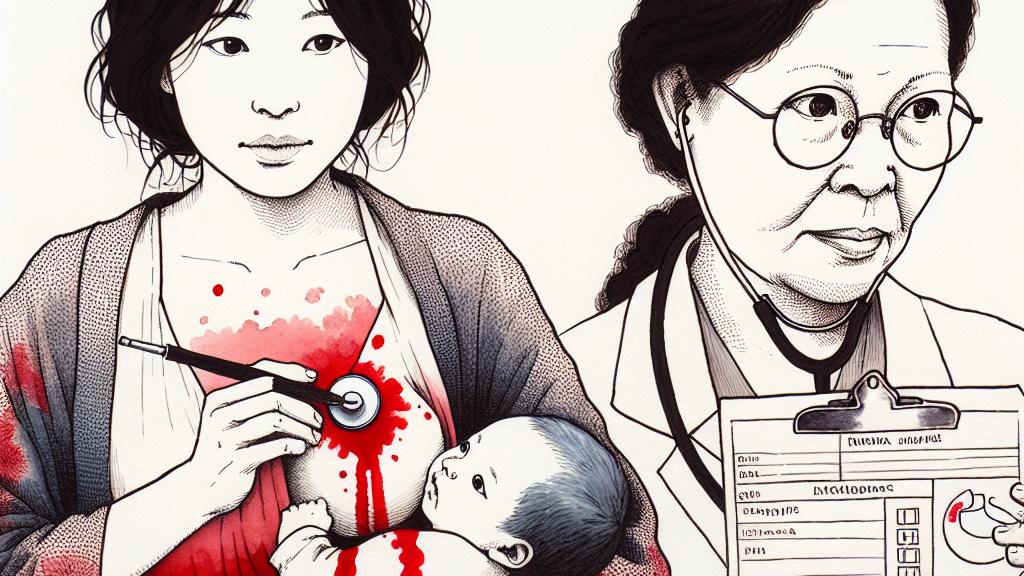The Uncommon Case of Blood Milk Postpartum: A Life-Saving Discovery
Overview
- Postpartum blood milk may appear alarming but can indicate significant health issues.
- A midwife’s swift action led to the early detection of breast cancer in a new mother.
- Being aware and proactive in maternal health can save lives and improve outcomes.

Understanding the Mystery of Blood Milk
After giving birth, many Japanese mothers may encounter what is known as blood milk—breast milk that appears reddish in color. This intriguing phenomenon can be relatively common, often resulting from the fast development of blood vessels in response to nursing demands. Nevertheless, it shouldn't be taken lightly. For instance, a sharp-eyed midwife noticed this unusual milk during a routine examination and instinctively suggested further checks. Her attentiveness proved vital, as tests later revealed a diagnosis of breast cancer. This situation solidifies an important lesson: while blood milk may seem ordinary, it can sometimes be a telltale sign of a serious health condition.
The Crucial Role of Midwives in Maternal Care
Midwives are invaluable pillars of support for new mothers, navigating them through the ups and downs of postpartum life. Their expertise enables them to discern between typical variations and concerning symptoms—take, for example, the dedicated midwife who encountered a new mother worried about blood milk. Instead of dismissing it as a normal occurrence, she recognized the potential implications and took immediate action, resulting in early intervention for a breast cancer diagnosis. Such experiences highlight that midwives are not simply facilitators at births; they are empowered advocates for maternal health, crucial for ensuring the well-being of mothers and their infants through careful monitoring and guidance.
Empowering Mothers Through Vigilance and Education
A proactive approach can go a long way in maternal healthcare. New mothers should cultivate awareness about their bodies, paying careful attention to changes like the color or texture of breast milk. For example, healthcare professionals often encourage self-examinations and regular check-ups, as being informed can lead to timely action. Consider the inspiring case of a mother who, after being educated about postpartum health, diligently observed her body and reached out to her midwife when she noticed unexpected anomalies. This diligence led to prompt discussions and assessments that ultimately safeguarded her health. The message is clear: ongoing education and communication are critical. Establishing a trusting relationship with healthcare providers empowers mothers to voice their concerns openly, which can make all the difference in identifying issues early. In essence, being informed, vigilant, and engaged not only enhances postpartum recovery but also significantly impacts overall well-being.

Loading...